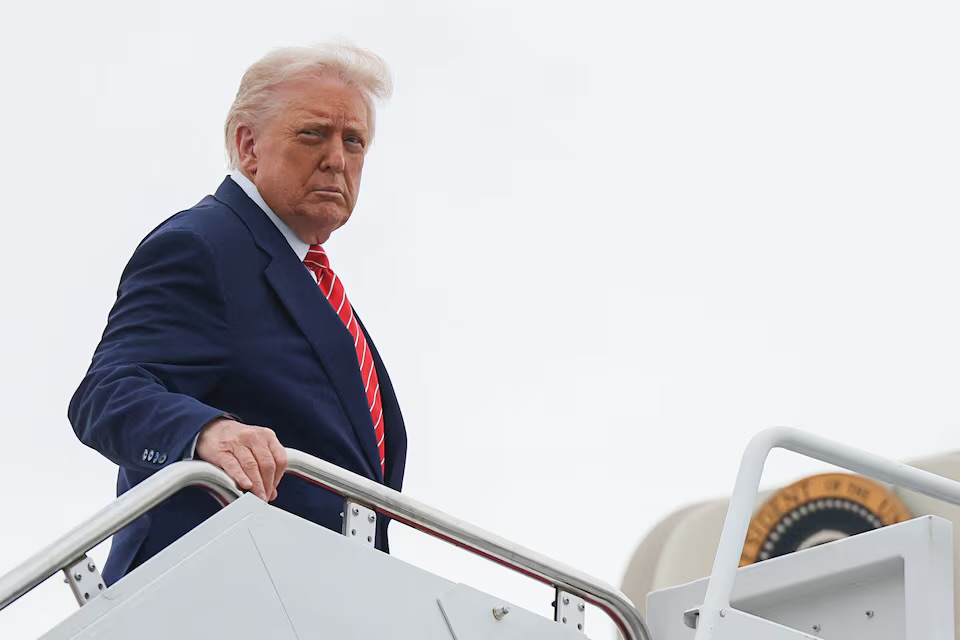United States President Donald Trump’s approval rating has dropped to 40%, the lowest point of his second term, as Americans voice increasing dissatisfaction with his handling of key issues such as immigration and the economy.
The findings come from a three-day poll conducted by Reuters and Ipsos, which concluded on Monday. The survey included 1,023 adults nationwide and carries a margin of error of three percentage points. In mid-July, Trump’s approval rating stood at 41%, reflecting a modest but notable decline.
The poll results underscore a starkly polarised nation: 83% of Republicans said they approved of the president’s performance, compared with a mere three percent of Democrats. Among independents, about one-third expressed approval.
Trump, who was re-elected in 2024 on promises to revitalise the American economy and implement a hardline immigration policy, is now receiving mixed reviews on both fronts. Notably, support for his immigration strategy, once considered a strength, has significantly eroded. Back in March, around 50% of Americans approved of Trump’s approach to immigration. Today, that figure has dropped sharply.
The president’s tactics, including increased deportations and stringent enforcement, have sparked backlash across the country. A separate CNN/SSRS poll found that 55% of Americans believe Trump has gone too far in deporting undocumented immigrants, a 10-point jump since February.
“I understand wanting to get rid of illegal immigrants, but the way that’s being done is very aggressive,” said Donovan Baldwin, 18, of Asheboro, North Carolina, who did not vote in the 2024 election. “And that’s why people are protesting because it comes off as aggression. It’s not right.”
Trump’s economic policies are drawing scrutiny
His economic policies are also drawing scrutiny. The Reuters/Ipsos poll showed a slight uptick in approval of the economy, rising from 35% to 38%. However, the CNN poll paints a bleaker picture, suggesting that many Americans feel the policies have done little to improve their financial well-being.
There is particular concern over the impact of tariffs, a cornerstone of his economic strategy, which some fear could hurt domestic industries and raise prices for consumers.
Nevertheless, not all voters are turning their backs on the president. Brian Nichols, 58, of Albuquerque, New Mexico, who supported Trump in 2024, remains cautiously optimistic.
“We put him into office for a reason, and we should be trusting that he’s doing the job for the best of America,” Nichols said. Though he admits concerns over Trump’s volatile style and his unpredictable use of social media, Nichols said he’s still backing the president, for now.
As Trump enters the latter half of his second term, he faces a delicate balancing act: shoring up support among his base while addressing growing discontent among independents and moderates. With immigration and the economy front and centre, how he handles these issues could define the remainder of his presidency.



